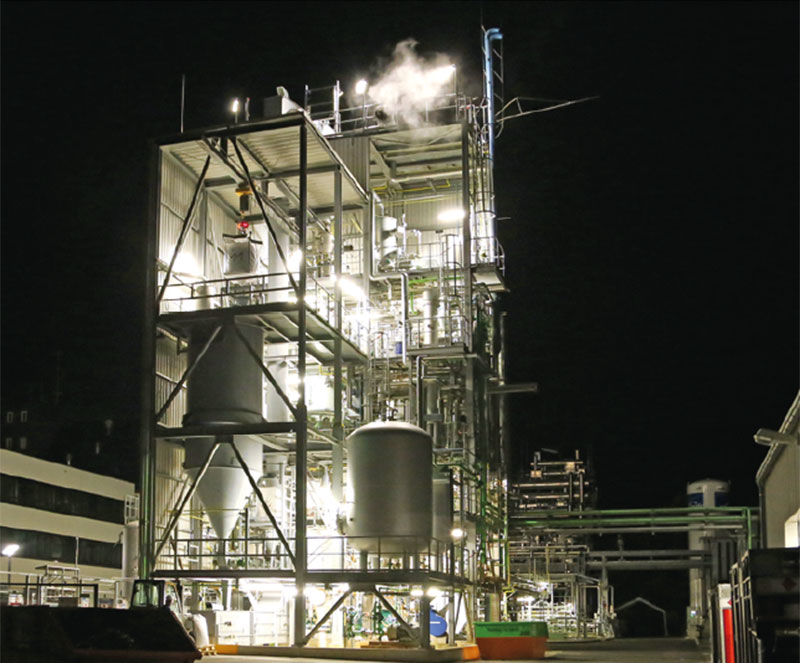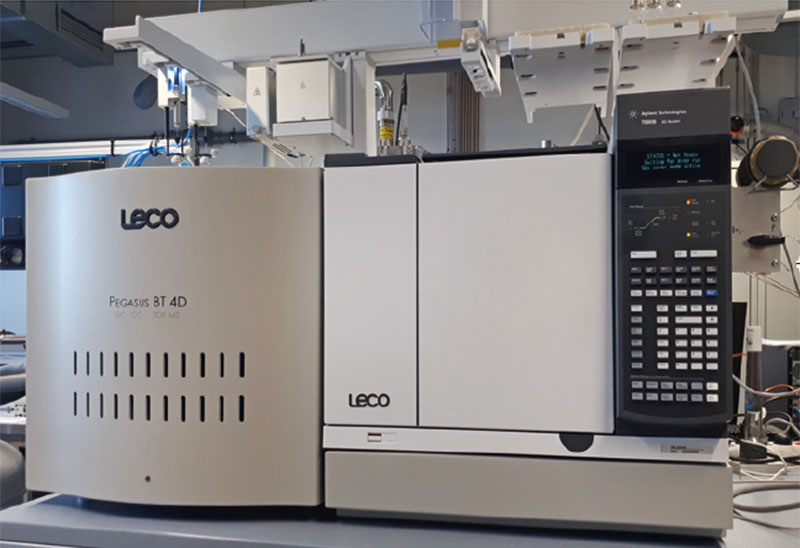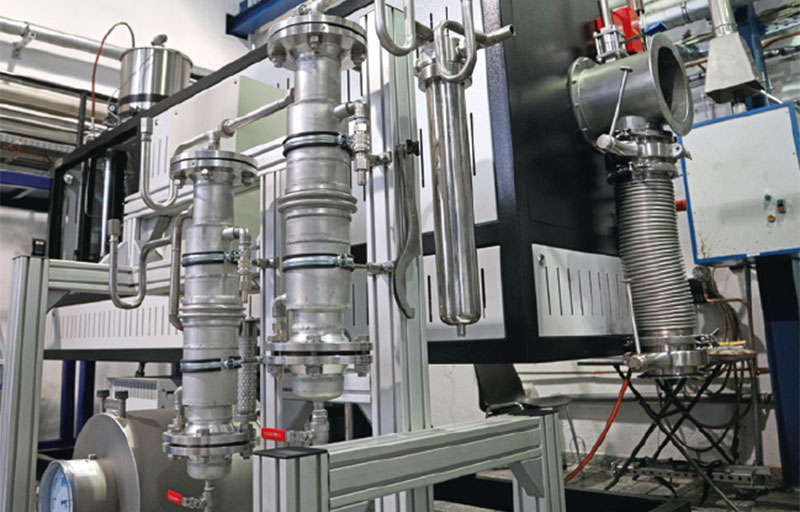
New raw materials and energy resources for a green industry
Current research




Carbon is a central raw material of countless products of our daily lives. Until now, the industry has relied on fossil raw material sources such as oil, natural gas or coal. During the production of these raw materials as well as at the end of the product life during combustion, large amounts of CO2 are released. Germany alone incinerates around 47 million metric tons of these carbon-containing wastes in thermal waste treatment and combustion plants every year. Through precisely coordinated process combinations of chemical recycling, Fraunhofer IKTS and its new workgroup “Circular Carbon Technologies” want to recycle up to 100 % of these wastes in the future and make them usable for new products. Waste thus becomes a valuable source of raw materials, for example for basic substances in the chemical industry.
Large-scale testing of chemical recycling processes
At the new IKTS site in Freiberg, chemical recycling processes, such as pyrolysis or gasification, are optimized and tested on a large industrial scale. Plastics that are not mechanically recyclable, biomass or fossil mixed waste are broken down into smaller molecules so that they can be reused as synthesis gases, monomers or other intermediates in the chemical industry. For this purpose, IKTS operate a pyrolysis platform and – in cooperation with the TU Bergakademie Freiberg – systems for gasification in order to investigate various issues: Which waste fractions can be converted into which type of raw materials? How must the processes be operated in order to avoid corrosion or caking or to achieve a certain purity of the products? No less important is the question of cost-effectiveness. For industrial partners, various technologies can be adapted, evaluated and transferred into customer-specific solutions for the closure of carbon cycles.
Combining carbon recycling and power-to-X technologies
These competencies are to be expanded in the future. Regenerative electricity must form the basis of all substance conversion, e.g. for the production of green hydrogen. If the recycling processes mentioned above are combined with electrochemical conversion processes, such as high-temperature electrolysis, or synthesis processes, such as Fischer-Tropsch synthesis, higher-quality products, such as synthetic kerosene, can be produced on the one hand, and high efficiencies can be achieved on the other.
A holistic view of material, energy and heat flows
Only by coupling material, energy and heat flows in total is it possible to develop process concepts that offer a clear added value compared to previous approaches. Fraunhofer IKTS has many years of experience with technologies for hydrogen production and use. High-temperature electrolysis and Fischer-Tropsch synthesis are key technologies in this regard. With our expanded expertise in carbon recycling technologies, we are now able to provide new raw material and energy resources for a green industry.
Sponsored by
